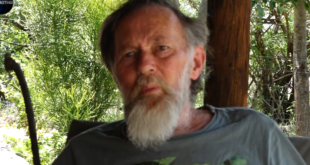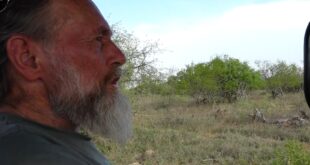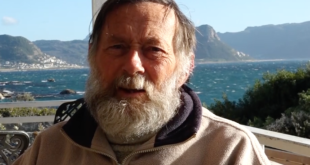Have you read the whole of Bill Mollison? Permaculture? Yes? Did you spend time with Bill Mollison as well? Yes. And when you spoke to him compared to the material that he has, in his book, what sort of thing was the stuff that you’d most be talking about when he was sort of beginning to bring you into the camp, as it were.We were fortunate in the sense that bill came to encourage the growth of a permaculture Centre in Zimbabwe. So most of the time was, in fact spent walking around the land that had been trusted to the permaculture centre. So most of the time was spent walking about a say, this piece of land that was in, in many respects, a very interesting piece of land. And Bill was a person who was fascinated by nature. So we would walk about and have observations. And in a sense, I was like a resource person to help them and answer questions that he had. So for example, what is that species? What is that species. And various themes came up, so to speak. And he would make observations and we would have a dialogue of regarding those observations. So for example, a lot of this is that one of the issues we were looking at, is the issues of water harvesting. So that potential at that time Bill, for example, was very enthusiastic about the work that was done by humans, what so called key land farming, and he regarded it as different names. That where you consider the topography of a piece of ground in relation to harvesting whatever rainfall is available. So a lot of it would be looking at the surface of the land and walking it so that we could design up a water catchment system on that farm. During our poor ambulation, if you like we took certain diversions that he eventually captured on film, for example, the discussion on termites because on the farm with some very interesting old termite mounds, so part of it was looking at the pattern of termites on that particular piece of ground. So that would be certain examples. He was fascinated by certain species. And you know, what the names were, were that what are the uses, were there any local uses insert, etc. So one of the most memorable themes, if you like, was our discussion regarding termites. And it was really through those discussions that previous example of termites as the first African farmers emerged, and he introduced the recognition of a termite mound as a community, what he would in those days called a guild, in other words, an association of different beneficial interactions, and how that’s such a fundamentally important permaculture principle is making connections between species and trying to establish beneficial relationships. Linked to that, in a sense was the fascinating for phenomena if you like of mica riser in a Mian Bucha woodland is that you have a lot of indigenous species that support micro riser that produce very beneficial results, in other words, in the form of edible fungus. So, there must have been on that farm, close to a dozen edible fungal species. Many of the most interesting workcamp RELLIS certainly boletus there was terma, mitosis you know, mushrooms that could be harvested from the woodland. And really what it was is a positive symbiotic relationship between trees and funghi in the roots below We did have a couple of controversies regarding animal management. In US being Africans and very cattle orientated. We had a lively debate regarding animals. So those were those were two examples that stand out in my memory. Another obvious very positive spin off was the discussion and actual implementation of a seed exchange, where he had brought a couple of interesting species from Australia, or Tasmania, and was very interested to collect a number of species that were endemic to Southern Africa. So there was a very delightful positive exchange of species. For me, personally, one of my prior interests in being indigenous food plants. So I was able to give him seeds of some of the things that I’ve been experimenting with that he was delighted and I received seeds of some other interesting species. You grow those seeds? Yes. Did they succeed? Some did and some didn’t? Yes.
 Mother Channel Environmental, climate change news and media.
Mother Channel Environmental, climate change news and media.



